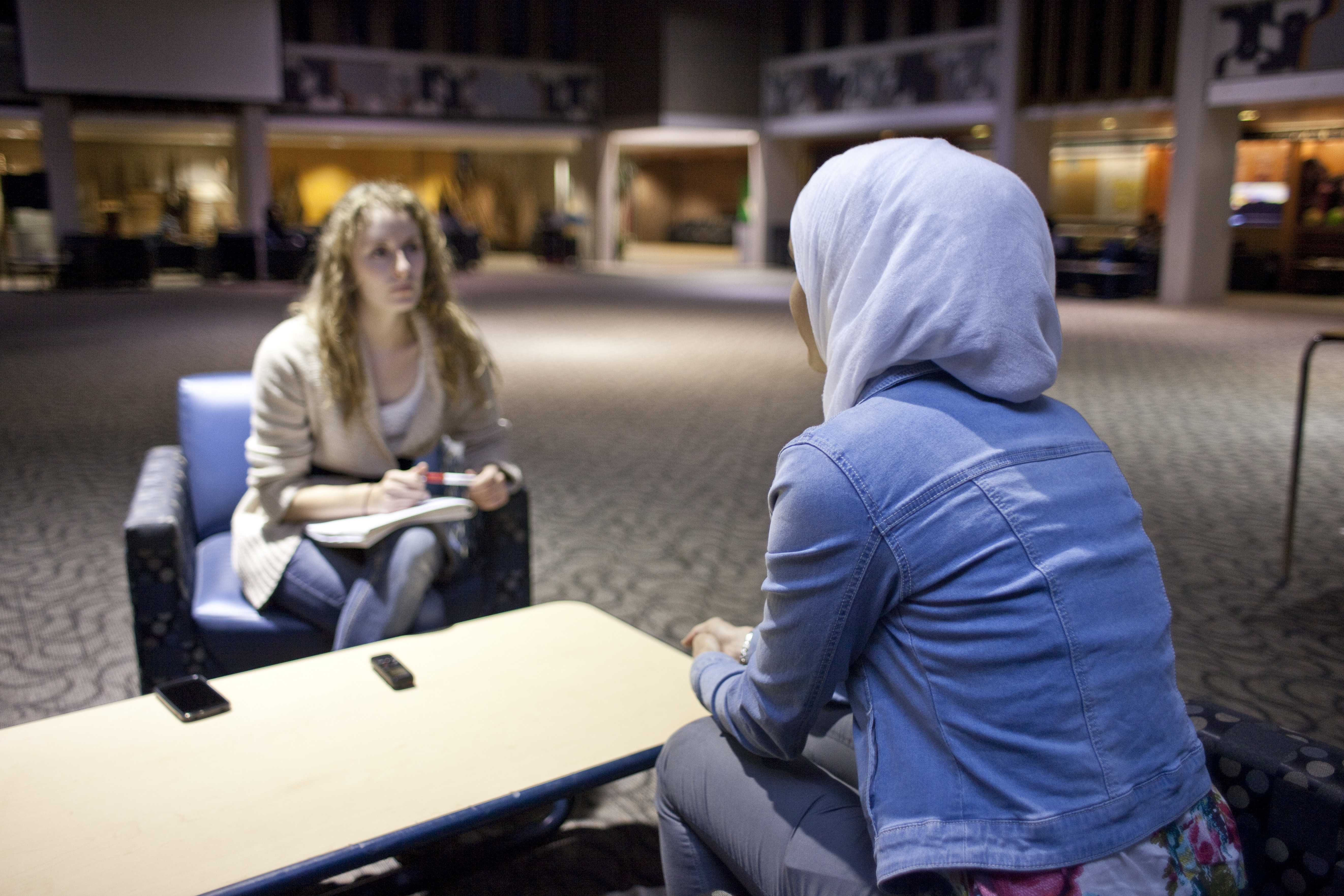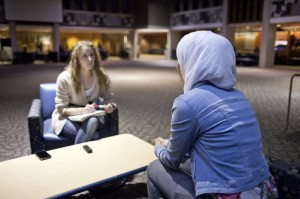Syrians from Kitchener-Waterloo share thoughts on crisis


“It seemed unshakable.”
This was Omar Salaymeh’s impression the last time he visited Syria in 2009, the country he lived in for 12 years before moving to Canada. He was shocked when the revolutionary Arab Spring movement came to the country, leading to a conflict that has claimed over 100,000 lives since 2011.
“There was a general sense of fear from the regime, a general resentment to the corruption that was going on, but it was just … that’s the way it’s always been.”
Salaymeh, 29, now works at The Tannery, in Kitchener.
Second-year University of Waterloo student Zeina, who declined to give her last name out of security concerns, had a similar impression of the situation. She lived in Syria until the end of high school, in Aleppo, and has dual citizenship with Canada.
“I never thought that there could be a president other than Assad ruling. That wasn’t something to question,” she said.
Zeina recalled having to memorize a book of quotes from the president in school, something they were required to know with greater precision than even the Qur’an.
Comments were made by Syria’s deputy prime minister last week suggesting that the government would seek a ceasefire, but such action has yet to take place. This comes just over a month after the Aug. 21 chemical weapons attack in the capital city, Damascus, which killed over 1,000 people. Western governments attributed the attack to the Syrian government, while Russia maintains it may have been opposition forces.
Rafah Hawa, a 23-year-old engineering student who currently lives in Damascus, heard news of the attack as it was happening.
“We heard like strange noise coming from the rocket launcher, which is located inside the area that is controlled by the regional forces,” she said.
“And awhile after, we heard that hundreds of people had been killed by these chemical attacks.”
While she said that sometimes “it’s normal,” and she’s able to go to school, other days are too dangerous. Recently, a mortar shield landed in her neighbourhood, killing six people.
“We are afraid for our lives,” Hawa said.
The chemical attacks in particular have led to increased discussion among international actors about the possibility of international military action against the Assad regime.
While the government and some components of the rebel forces do not support this option, Hawa believes it’s what the average Syrian wants.
“Russia isn’t going to stop supplying this region with all kinds of weapons. So unless there is military action into Syria, there is no solution of any kind,” she maintained.
“Force is the only way this regime can be forced to actually sit down at a table and diplomatically support a solution,” Salaymeh added.
It’s difficult to imagine, however, what a solution might look like. Mass human rights abuses have been committed by the government and rebel forces and to complicate things further, groups fighting against the government aren’t united under one leadership.
“We always said, from day one, the longer this conflict goes on, the more muddy the waters will be and the harder the solution will be afterwards,” he continued. “I think Assad will go eventually, but I really fear for the one after him.”
Zeina used to believe in taking sides. Seeing the atrocities committed by the government fuelled her hatred.
But on her most recent trip to Syria, in August, staying in a government-occupied city where posters of martyrs line the streets, she had a change of heart.
“I used to say I wish they’d all die, but when I went there and I saw their pictures, they’re all between 20 and 25-years old; in the end, who are they?” she questioned. “They’re the Syrians who have to serve their army. They are either forced to do that or they believe they are seriously serving their country.”
She continued, “People are dying from both sides and I just wish people could stop thinking, this is the right side and this is the wrong side, because there is no such thing as that.”
One of the main impacts of the conflict on Syrians, including Zeina’s family, is mass displacement. Numbers of over 2 million refugees have been recorded, with an additional 4.5 million internally displaced people.
Living in Canada, Zeina expressed that she feels “blessed,” but believes that Canadians should pressure the government to accept more refugees.
She struggles with being safe in Canada while her family remains in Syria.
“I can’t, for example, go to the cinema. It makes me feel so bad. Or anything, just to do something for fun,” she said
“It’s out of the question.”

